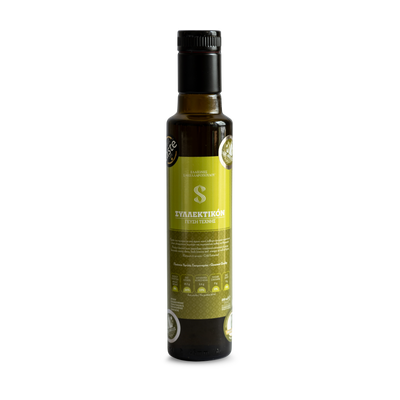Why one good Extra Virgin Olive Oil in your kitchen Is not enough?
By Lisa Radinovsky
First, let us assume we need extra virgin olive oil. We need it for the unique accents it adds to our food and for its antioxidant, anti-inflammatory, anti-cancer, and cardioprotective effects. But why do we need different kinds of it in our kitchens, dining rooms, and restaurants? We need them for variety, optimal food pairings, and distinct purposes.
In an ideal situation, everyone should be able to season the food on their plate with the oil that best fits their taste. - Giovanni Bianchi, Argali
“There are lots of different taste buds out there,” as Maria Guadagno Katsetos of Loutraki Oil Company emphasizes, “so we need lots of good, different delicious olive oils to fit those needs. One olive oil is never enough.”
As William Cowper wrote in his poem, The Task, “Variety’s the very spice of life, that gives it all its flavour.” You may not think of extra virgin olive oil (EVOO) as a spice, and some of it is more fruity than spicy, but a good EVOO will certainly add its own unique accent to just about every dish you eat. (Yes, that includes desserts.)
Ioanna Damianaki of Nature Blessed points out that “it is good for everyone to know the olive oils of all the different areas in Greece,” for example. Once we start sampling them, we will discover a wonderful array of flavours even in this small country, thanks to the numerous microclimates, olive varieties, harvest times, and cultivation and production methods used. (It is much more than a question of the region.)
Greek extra virgin olive oils can range from quite mild and fruity to considerably spicier. Imagine, then, how much more variety we can enjoy when we add olive oils from the rest of the world!
Different olive oils pair well with different foods
We can think of olive oils as we think of wines, except that most of us do not drink our olive oil in a glass. Giovanni Bianchi of Argali advises that olive oils, like wines, should be chosen to produce the ideal “combination with the food you want to consume.”
As Giorgos Karitsiotis of Kasell reminds us, “each type of olive oil has a different tasting profile which can be combined with different types of food.” Panos Kloutsiniotis of Ladolea adds that the intensity of olive oils also varies, so our choice of olive oil should depend on “the final taste that we want to give the dish.”
The North American Olive Oil Association provides a summary of popular pairings of delicate, medium intensity, and robust extra virgin olive oils with certain milder and more strongly flavored foods, with the intensity of the olive oil typically matching the intensity of the dish. As a starting point, these are useful suggestions, and Olive Oil Times also offers a pairing app.
Moreover, Bianchi suggests, “the personal taste of the consumer” can play a role in olive oil selection. “In an ideal situation, everyone should be able to season the food on their plate with the oil that best fits their taste (so not necessarily with the classic combinations — delicate oil for fish, etc.).” In other words, feel free to experiment with an assortment of EVOOs and make your own choices.
Different olive oils are better for different purposes
Emmanouil Karpadakis explains that “a good extra virgin is suitable for most uses in the kitchen; however, you may want a very good and fruity oil for the salad, while you have a simple medium to low organoleptic profile oil for cooking or frying” — that is, an extra virgin olive oil with a milder flavor.
In addition to organoleptic characteristics, Nikos Sakellaropoulos reminds us that some olive oils are organic or flavored, while others are not, and some offer more health benefits than others (although all EVOOs are very healthy). Having “different types of olive oil allows you to do more, and mainly use the right olive oil for each occasion.” Which one is right will depend on your priorities as well as your preferences: health benefits, organic products, blending flavors, or adding a bold flavor accent when stewing, sautéing, frying, baking, or finishing dishes.
“For example,” Sakellaropoulos explains, “only extra virgin olive oil of the highest quality should be used for frying, due to its higher resistance to high-temperature degradation, compared to sunflower seed oils and cheap olive oils.”
“Finally,” concludes Sakellaropoulos, “flavoured olive oils, when cooked, lose most of their aroma and flavor; thus they should be used in low-temperature cooking or as raw food ingredients.” Many also prefer to save the finest unflavored extra virgin olive oils for finishing dishes, in order to fully appreciate their unique aromas and tastes.
So allow yourself a wide range of olive oil choices, as you allow yourself a variety of drink options. Select several of your favorites, and experiment in your kitchen and at your table. The results may surprise you.
Read the full article here




























































